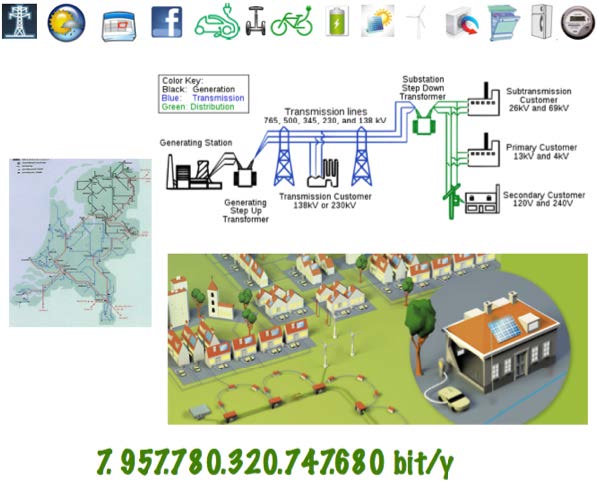Analysis and Control
Complex systems and networks are intrinsically difficult to analyze and to control, even if large amounts of data about their behaviour are available. Furthermore, the complexity often shows up precisely in the data flow and communication/computation structure. For example, in a large-scale smart grid one aims at using a large amount of on-line data about consumption and production of all agents in order to balance the supply and demand in a way that can handle the complexity of the data, is robust with respect to failures, and does use the data in a ‘smart’ way. In fact, the ability of real-time monitoring integrated with predictions about future demand and production can make the power grid more secure, efficient and, in turn, environmentally friendly. Another link with data resides in the identification of complex systems based on large amounts of data. In this case, data may be used to identify the network structure (which subsystems influence which) or to estimate the parameters (what are the strengths of coupling between subsystems). A challenging example is systems biology where one wants to identify or improve the underlying model based on large amounts of noisy data.

Key questions:
-
How to develop scalable methodologies for analysis and control/design of complex systems?How to develop a range of concepts and techniques: from graph theory, statistics, control theory, to dynamical systems and probability, for handling complex systems?
-
How to develop algorithms that can handle large complexity, the efficient structuring of databases, formal methods to verify properties of complex systems, and visualization to explore large complex systems?
-
From a systems-of-systems perspective: how to develop methods, tools, and languages to tackle the five challenges: operational independence, managerial independence, geographical distribution, evolutionary development, and emergent behaviour?
